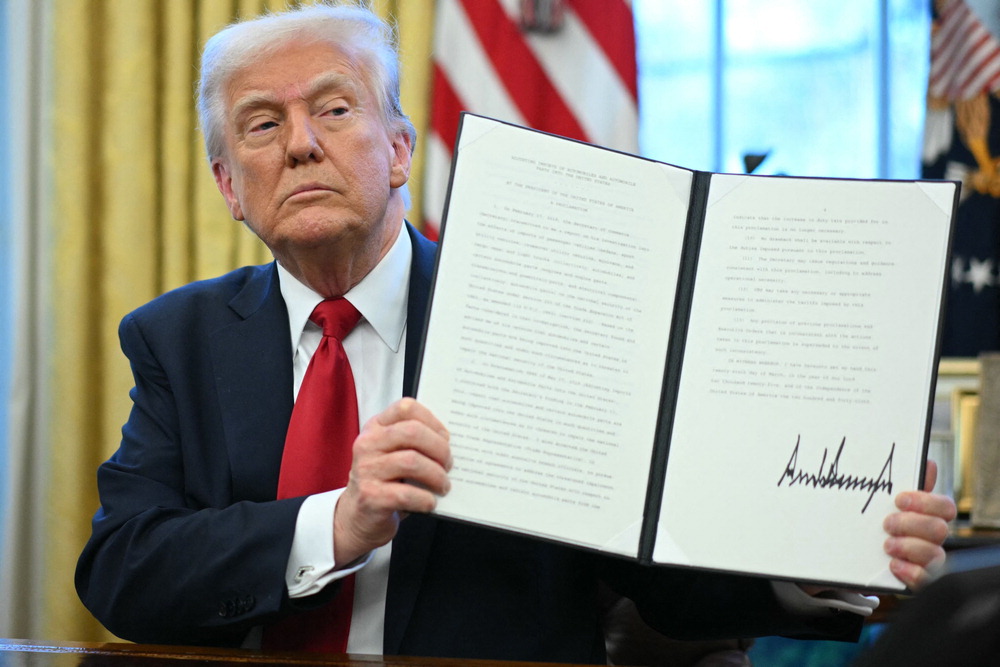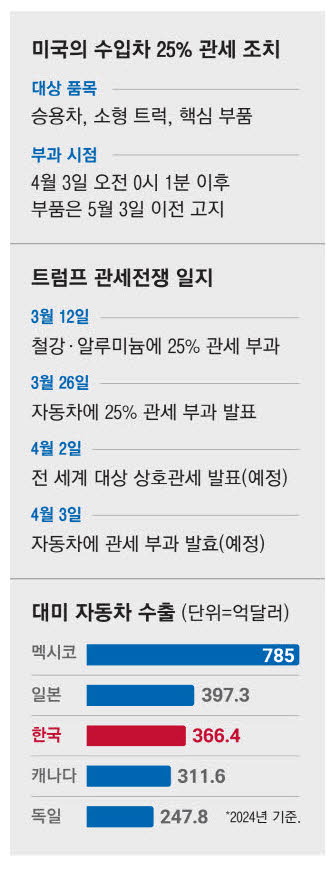
The proclamation signed by President Trump on the same day stated that the auto tariff measures are based on Article 232 of the Trade Expansion Act and that "import of automobiles and certain auto parts continues to threaten U.S. national security." "The agreements revised before May 2019, such as the Korea-US FTA and the US-Mexico-Canada Trade Agreement (USMCA), did not produce positive results," he concluded. According to the proclamation, 25% tariffs on imported cars will be imposed on cars imported after 0:01 a.m. on April 3. Tariffs will be imposed on major automotive parts such as engines, transmissions, powertrain parts, and electrical parts from the date they are separately notified in the Federal Register. However, it stated that it will be applied until May 3rd at the latest.
The proclamation also has provisions related to "American content (content or parts)." The 25% tariff only applies to values other than the US contents. "Automotive parts covered by USMCA will remain tariff-free until the Secretary of Commerce consults with the U.S. Customs and Border Protection (CBP) to establish a procedure to apply tariffs to non-U.S. contents," the White House added.

However, regarding the mutual tariffs, which are set to be announced on April 2, it said, "We will apply them to all countries and apply them very generously."
President Trump also said, "We will also impose tariffs on drugs to revive the pharmaceutical industry." Asked if tariffs on wood would be imposed from April 2, he replied: "Not then, but tariffs are imposed on wood."
The European Union (EU) and Canada immediately protested the Trump administration's announcement of auto tariffs. EU Commission President Ursula von der Leyen said in a statement that she was "deeply sorry" and Canadian Prime Minister Mark Carney criticized it as a "direct attack on Canadian workers," Reuters said.
Japan's Chief Cabinet Secretary Yoshimasa Hayashi said, "It is extremely regrettable that Japan was also announced in the form of being included in the target country."
Trade, Industry and Energy Minister Ahn Deok-geun held an emergency meeting with automakers and related associations and research institutes at the Korea Chamber of Commerce and Industry in Seoul to discuss the impact of U.S. tariffs on the domestic auto and auto parts industries and countermeasures.
Minister Ahn said, "We plan to announce emergency measures for the automobile industry with related ministries in April," adding, "We will come up with support measures focusing on industry recommendations such as improving the domestic investment environment, boosting demand, and diversifying markets."
Attention is also focusing on the contents of the "Miran Report" prepared by Stephen Miran, chairman of the White House Economic Advisory Committee, in November last year. According to the Washington Post, the 41-page paper is drawing attention as a blueprint to understand the uncertain economic policies of the Trump administration. It includes measures to ease tariffs if U.S. government bonds are exchanged for interest-free bonds after pressing the other country with tariffs to resolve trade deficits and fiscal deficits through the depreciation of the dollar.
[Washington correspondent Choi Seungjin / Reporter Shin Yu-kyung]














